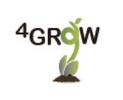Rural Uganda COVID19 Rural Awareness and Response
Registered Name: 4Grow
Business No: 811227982RR0001
This organization is designated by Canada Revenue Agency (CRA) as a registered charity. They comply with the CRA's requirements and has been issued a charitable registration number.
4GROW works in Teso District, a large rural area with a population of 1.6 million people. The coronavirus pandemic poses a serious threat to all of them.
In remote rural areas, people are extremely vulnerable to this infection because they are mostly uninformed of its approach, and of how it spreads among individuals. To warn and inform the public, 4GROW has reprinted 1000 English-language posters and flyers obtained from the Ministry of Health of Uganda. These are being posted in villages and distributed to rural households by residents able to read English and to interpret the Ministry's message and warnings to heads of households throughout the at-risk area.
These volunteers explain the danger represented by COVID19, and how to prevent transmission of the disease through practices such as hand washing, social distancing and self isolation by persons who feel unwell. The information will be shared urgently and intelligibly in Ateso, the language spoken by the people, so they will know how to protect themselves and their families without arousing undue alarm or panic.
In addition to these efforts, 4GROW has engaged a local radio station for $12 per day to broadcast warnings and instructions in Ateso to the public, three times daily ongoing. A contact phone number is provided for anyone seeking clarification or further information. Funding is also needed for charts and visual aid posters for people who cannot read. These will be posted in homes, clinics and churches.
Social distancing and self isolation is very difficult where social interaction is intricate and community oriented, so we will provide each woman in 4GROW groups an inexpensive telephone to help her maintain social and family relationships.
Finally, with a simple pattern and material, women can make protective masks for their own households and for their community. In these ways the entire population will receive lifesaving information. enabling them to protect their families as the virus arrives in their communities.
